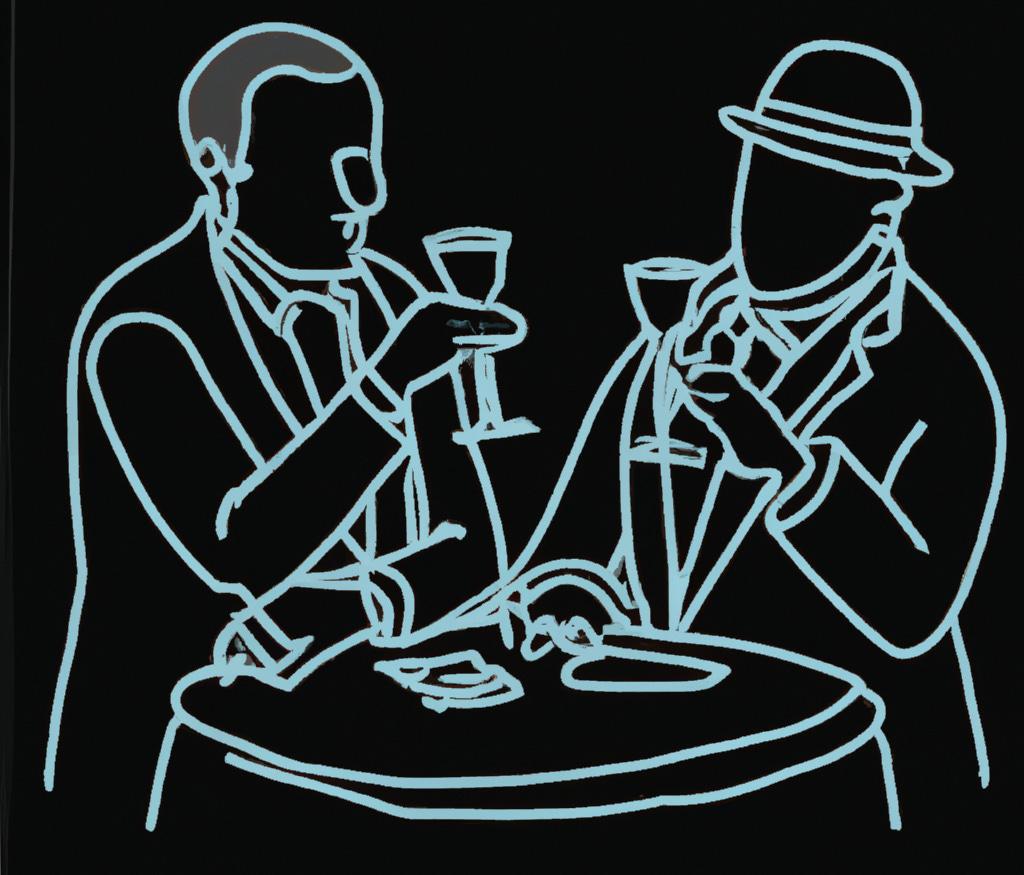Dear Rotten Scoundrels
Characters in musicals can lie to one another, but shouldn't lie to the audience in song.
Dear Evan Hansen and Dirty Rotten Scoundrels (the musical) have something in common: each of their stories concerns a sustained deception.
This in itself isn’t striking or new. The same could be said about The Music Man, Aladdin, Sweeney Todd, etc. Deception builds tension, allows us to like a character while fretting about their discovery, lets us savor the anticipated mess when everything invariably falls apart.
But deception creates a hazard for musicals, where we expect the emotions of a song to reflect the truth of the situation — and specifically, what’s at stake. Characters don’t need to tell the truth to one another, but they always need to sing the truth to the audience.
Here’s an example. In The Music Man’s “Ya Got Trouble”, professor Hill lies to the townspeople about the dangers of billiards. Or maybe he’s telling the truth about billiards — I dunno, I don’t play — but he’s lying about what he wants. He wants to sell overpriced band instruments. He doesn’t actually care about the moral turpitude of local teens.
Likewise, we the audience aren’t actually worried that little Winthrop will run straight from the pool hall to laudanum addiction and horse theft. We are concerned with 1) whether Professor Hill gets caught, and 2) whether the River Citizens get swindled. Those are the dangers that loom this story, perhaps in delightful ways. The evils of billiards are false stakes.
The lyrics warn sternly of moral hazard, but the music is bouncy and jocular, the melody mostly a salesman’s patter. The words lie, but since we know that Prof. Hill is a trickster who enjoys his scams, we experience the fun song as emotionally authentic. Hill revels in his dextrous showmanship, his silver-tongued flim-flammery. And so do we.
Let’s do a thought experiment. What if Professor Hill actually cared about the moral impact of pool on the community? What kind of song would he sing? Certainly not a joyous two-step like “Ya Got Trouble”; that song is about the thrill of bamboozling the crowd, its words cunningly in small-town parlance. A truly worried Hill would sing a grim dirge or march, perhaps something Les Miserablish, to reflect his serious concerns.
But Hill sings his truth and this makes for great musical storytelling. The problem arises when there’s an in-story deception and the music does not match the emotional experience of the characters, or the stakes of the story.
Note: some spoilers follow.
Thirty minutes into Dear Evan Hansen (disclaimer: I’ve only seen the movie) the titular teen finds himself trying to comfort — or at least, not disappoint — a grieving mother who’s desperate to believe that her son wasn’t an anguished bully. Evan barely knew Connor, but fabricates a fictional friendship just to soothe mom. In “For Forever” he sings of a summer day of camaraderie that never happened.
What are the actual stakes at this point in the story? 1) Whether or not Evan is caught in his deception, 2) Whether or not Mrs. Murphy has an emotional breakdown. From our point of view, those are the only two things that could either happen or not happen, barring a ceiling collapse or other surprise.
The song follows the emotional contours of the lie; it soars with reminiscence of the friendship that never was. But it doesn’t reflect Evan’s current stakes or emotions (he’s beset by social anxiety and discomfort with the lie) and it doesn’t reflect his personal experience (he was never friends with Connor). So what exactly is the song about?
There’s a moment of honesty when the song suggests that this fabricated summer idyll is part of a friendship that Evan wishes he had. But big picture-wise, the music is a pantomime of nostalgia, reflecting emotions Evan doesn’t feel, and that we therefore can’t feel in response. The song sounds how Evan wants someone else to believe that he feels.
Contrast this to the classic self-deluding narrator, a singer who’s wrong but thinks they’re right. (For some reason I’m thinking of Simon & Garfunkel’s “I Am a Rock”, but feel free to come up with examples that were recorded this millennium.) In that case the song is sincere, and the poignancy comes from our having more insight than the singer about their own condition. But Evan is just a big ole manipulative liar who has painted himself into a corner and is trying to falsify his way out.
He lies again during “You Will Be Found”, a soaring anthem which conveys an entirely unfelt optimism. At this moment Evan’s terrified and embarrassed, led by his own scheme into making a school speech. The stakes are whether or not he, beset by on-again-off-again social terror, faints in front of an audience or manages to squeak through his presentation. (You could argue that there’s an additional stake of whether or not he, euuu, dates the sister of his recently-dead fake best friend. But the song isn’t about that either.)
“You Will Be Found” has outsized in-story impact, raising community awareness of teen mental health and rallying everyone to inspirational horticultural projects etc. But at that moment Evan has no idea that any of this is going to happen. He does not, while making the speech, feel any confidence that anyone will be found, does not believe that those in need of comfort will receive it. He literally does not believe in hope, at that moment. All he knows is that he’s desperate to not blow his lie — that (heh) he’s afraid of being found. The performed emotions of that song are untruthful to the in-story audience, and untruthful to us.
In Dirty Rotten Scoundrels, the lie is more fun. Two over-the-top con men try to swindle an apparent heiress out of her fortune, but get outfoxed. This premise makes for a delightful movie (and one of my personal favorites), but its handling hamstrings the musical.
In the story, the swindlers (Freddy and Lawrence) compete to woo/bilk said heiress (Christine). They struggle in a kind of adversarial improv “yes and” exercise, each con man building a narrative in order to win Christine’s affections and fortune.
This is akin to The Music Man in that the graft is lovable and we empathize with the con men, at least sort of. The problem is that, unlike in The Music Man, the key songs rarely express what the characters actually care about. The songs emote what the leads pretend to want.
For example, in “Love is My Legs,” con man Freddy, feigning confinement to a wheelchair, tries to convince Christine that love will cure him of his disability. Remember, this is all part of a plot to beguile her and steal her money. Going through Freddy’s head at that moment must be “I hope that I beguile her and steal her money”. That’s the thing he cares about. But he gushes a saccharine love ballad, whose overblown music is parody by design. The tone of the music has nothing to do with the actual stakes, or the singer’s emotions. And so the song evokes, at best, a cold laughter.
To be clear, this scene works like gangbusters in the movie. But a movie doesn’t have to advance its story through honest emotional expression. Musicals do.
The worst offender is “Here I Am”, sung by Christine as she arrives in France. The lyrics characterize her as a naive middle-American tourist, awestruck by the Riviera. And she sings this perspective not to another character, but directly to us.
But Christine isn’t an overexcited traveler; she’s a hardened con artist. So the entire song is a lie to the audience. The lyrics include things that a swindler would never say (e.g. homey callbacks to mom and dad) and which make no sense in retrospect. But worst of all, the song is emotionally false — and the singer knows it.
“I’m Here” is doubly dishonest because there is nobody in the story to whom Christine needs to lie at that moment. She just fibs through the fourth wall. Once we know the truth, the song is empty in retrospect, a trick to evoke an unearned emotional reaction.
The show’s redemptive moment comes at the end, where Freddy, Lawrence, and the now-uncloaked Jackal share a song of camaraderie about their experiences together and possible future. This moment is fun and rewarding because it’s authentic: the emotions of the song reflect those felt by the characters. It’s too bad the entire musical couldn’t have tapped into this dynamic. As it stands, Dirty Rotten Scoundrels is sometimes funny but never touching.






